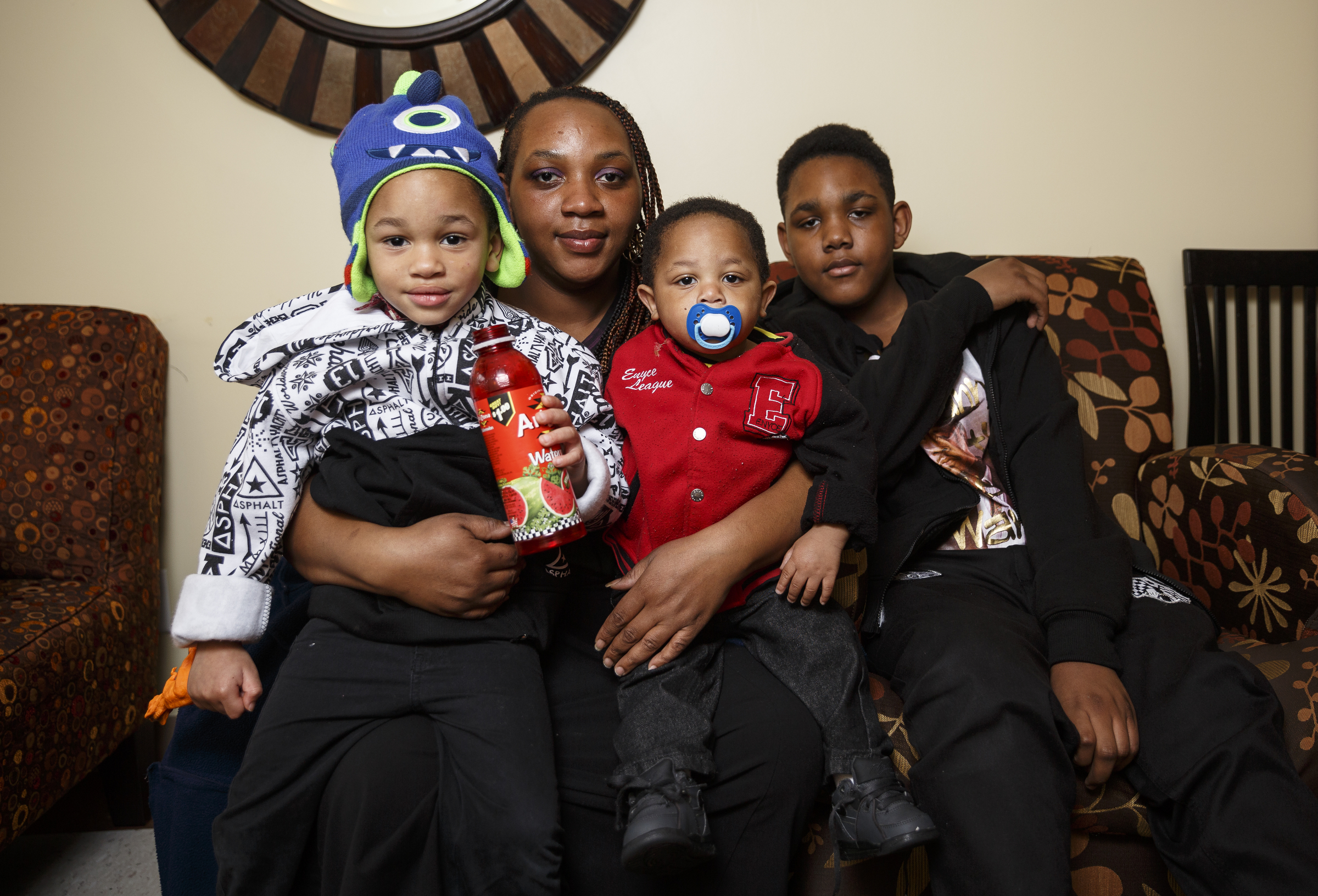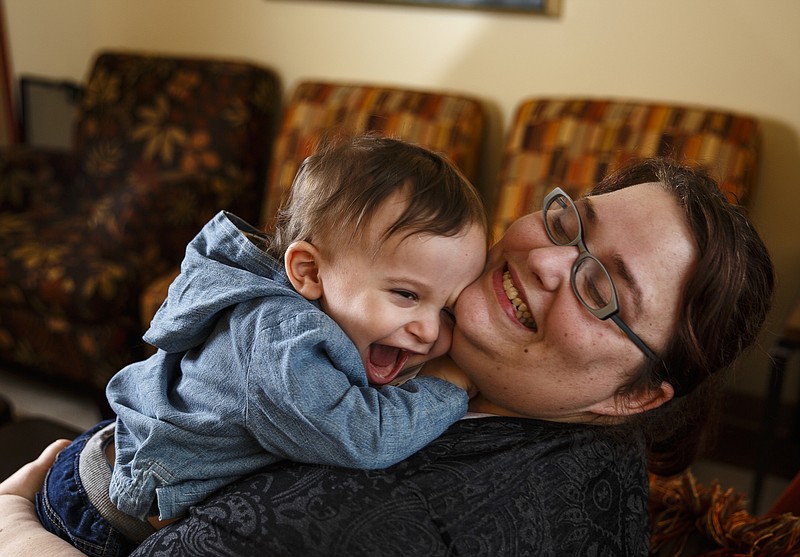By the numbers
› 100 percent of pregnant Baby U moms received prenatal care› 22+ families have improved their housing conditions and/or are no longer homeless› 30+ families have obtained employment since Baby U enrollment› Home safety hazards are being decreased through home safety education and linkages to resources such as hygiene products, safe sleep environments and car seats› 28+ families were linked with car seats› 47+ families were linked with Pack N Plays/safe sleep environments› ONLINE: To contribute or learn more about Baby University, visit babyuchattanooga.org.
 Patrice Martin is photographed with her sons Juan Cash, right, Sampson Martin, left, and Elijah Martin at Signal Centers on Tuesday, Feb. 28, 2017, in Chattanooga, Tenn. Martin is enrolled in the Baby University program, which helps parents establish effective early childhood development for children.
Patrice Martin is photographed with her sons Juan Cash, right, Sampson Martin, left, and Elijah Martin at Signal Centers on Tuesday, Feb. 28, 2017, in Chattanooga, Tenn. Martin is enrolled in the Baby University program, which helps parents establish effective early childhood development for children.The city says its Baby University program to help low-income parents form stronger families and close crucial developmental gaps has seen positive results.
The program was started in 2015 in an effort to assist families with keeping their children healthy and developmentally on target. And a year-end report released this week by the nonprofit shows the initiative is helping families find homes and work.
The city partnered with Signal Centers and BlueCross BlueShield's Tennessee Health Foundation to create a program where all pregnant mothers receive prenatal care, children are tested to make sure they're hitting developmental benchmarks, and they're referred to the appropriate agencies if the child's development falls behind.
In 2016, 100 percent of moms received prenatal care, more than 22 families improved housing conditions and/or are no longer homeless, and 30 families found employment.
The goal is for all families to have healthy children with no delays, said Donna McConnico, CEO at Signal Centers.
"We try to do whatever it takes to help the baby grow," she said. "For brain development, if we don't start at the beginning, we're going to always be catching up."
The program now includes 119 families with 228 adults and 296 children.
"What we know is that kids who start out kindergarten behind are likely to remain behind by the statistics. To change those odds, you need to make sure more kids enter kindergarten ready to learn," said Chattanooga Mayor Andy Berke, who is running for re-election against David Crockett, Larry Grohn and Chris Long.
About a quarter of the city's youth are at risk for not being ready for kindergarten, Berke said.
The city and Blue-Cross BlueShield spent about $325,000 in 2016 making sure the families had all they needed to give their children a good start in life. About $250,000 came from the city and $75,000 from BlueCross BlueShield's foundation.
At least 11 resource partners, including the Hamilton County Health Department and the United Way, work with Baby University to make sure mothers have resources they need. And if the problem is transportation, case managers have taken clients to where they need to go.
Baby University also helps with services like language translation, clothes and toys for Christmas.
"If it wasn't for them, we wouldn't have had a Christmas," said Patrice Martin, a mother of three sons ages 11, 3 and 1.
The program targets families with a child or children from 0 to 2 years old. But it doesn't only help those children, Baby University helped provide clothes and Christmas presents for all her three children, she said.
Baby University hosts monthly Parent Workshops at East Lake Academy, quarterly family events, focus groups, a walking club and other activities.
The nonprofit hired its first male case manager this year. The plan is to work more with fathers, McConnico said.
Eighty-five families in the program live in two-parent homes. Baby University also wants to reach out to fathers not in the home to discuss the importance of them being present in the child's life and create more father-centered activities, McConnico said.
And Baby University started meeting at Howard School, which enables it to assist more families with teen mothers and people of Latino decent, said Baby U Director Elizabeth Cotellese.
Most Latin family homes are two-parent homes because of the culture, said case manager Patricia Chastine. But there is a huge need for assistance because many parents speak hardly any English, or none at all.
Rachel Galorath, who lives in a hotel with her husband and 1-year-old son Jackson, said her caseworker took her house hunting.
"Even if I just need to talk to relieve stress, they're there for me," she said.
Contact staff writer Yolanda Putman at yputman@timesfreepress.com or 423-757-6431.
